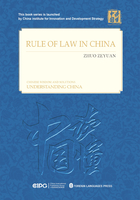
Chapter 1. Prelude and Resonance of History
In the east of the world and the north of Asia, there lies a magical and ancient country called China. The industrious and kind people have worked and harvested in this beautiful land from generation to generation. From late 2200 BC to early 2100 BC, the first dynasty was established– the Xia Dynasty (2070 BC-1600 BC). From the Xia, to the Shang(1600 BC-1046 BC), and the Zhou (1046 BC-256 BC), to the Spring and Autumn period (770 BC-476 BC), dynasties rose and fell. The Chinese society entered an important period of reform and transformation: from ancient society to traditional society.
On September 28, 551 BC, a great man was born into this magical land. His name was Confucius.
Confucius’ surname was Kong, his given name Qiu, and his capping name Zhongni. Even in his youth, he demonstrated unusual intelligence. He grew to be a tall, muscular, and knowledgeable man proficient in music, riding, archery, chess, calligraphy and painting. Confucius authored or edited the ancient Chinese classics including The Book of Songs, The Book of History, The Book of Rites, and The Book of Music, and revised the historical work Spring and Autumn Annals. He also actively advocated education and opened schools for his disciples, known in history as “teaching at the almond altar”. With the earth as his schoolhouse and society as his classroom, he led his students to travel around various states while teaching, which could be considered the largest campus in human history. Confucius had made a great contribution to Chinese culture and exerted a profound influence. The Confucius Institutes that have been set up around the world today are named after him.
Confucius also contributed to the development of law. He taught his students and advised the world how to deal with the relations between ethics, culture and law, so that law could give full play to its role under the guidance of ethics and culture. Many of his discourses and conversations with his students were compiled by his students into a world-renowned masterpiece, The Analects. A large number of the quotations have become classics and been passed down through the ages. “When proprieties and music do not flourish, punishments will not be properly awarded. When punishments are not properly awarded, the people do not know how to move hand or foot.” “If the people are led by laws, and uniformity sought to be given them by punishments, they will try to avoid the punishment, and have no sense of shame. If they are led by virtue, and uniformity sought to be given them by the rules of propriety, they will have a sense of shame, and moreover will become good.” There is a saying that “if one learns half of The Analects by heart, he could make a ruler of a country”. “In hearing litigation, I am like any other. What is necessary, however, is to cause people to have no litigation.” “No litigation” is what he set as the ultimate goal of litigation and even the goal of law. These ideas and philosophies are quite progressive even in modern times.
There is a story in Lü’s Spring and Autumn Annals, which illustrates Confucius’ view on the relationship between ethics and law. It is noted that during the Spring and Autumn Period, the State of Lu enacted a law that if the Lu people saw their countrymen being sold as slaves in other states, as long as they were willing to pay for their redemption, the state would compensate and reward the rescuers upon their return. This law was in place for many years, and many Lu people who had been enslaved in other states were saved and returned to their home state.
Confucius had a student in business called Zigong, who was very wealthy. He redeemed many of his countrymen from other states, but did not apply for the compensation from the state. He thought he did not need the money, and he was willing to serve the Lu people who had been enslaved in other states as a contribution to his state. When Confucius was informed of that, he became annoyed with Zigong and criticized him bitterly. In Confucius’ opinion, Zigong earned himself fame with his action, but he raised the social standard of “righteousness” at the same time. In the future, those who would go to the state for compensation might not be endorsed by the public any more, and they might be subject to public ridicule. They might even be expected to behave like Zigong, helping others without asking for compensation as a contribution to the state. As a result, many people would turn a blind eye to their countrymen enslaved in other states. Those in need of assistance in other states would not be able to return to their native land. That way, the enslaved Lu people in other states would remain in harm’s way.
Confucius’ ideas were very insightful. He handled the relationships between ethics, law and society very well. It is fair to say that he was a man of true wisdom.
Confucius died on April 11, 479 BC. A decade later, another great philosopher, Socrates, was born in ancient Greece. Many of his ideas and his philosophy about law were not known to future generations. However, he questioned the collective notion of “might makes right” and attempted to improve the Athenians’ sense of justice, which led to his unfair judgment and execution. The concept of law and values that he demonstrated has always been admired by future generations.
The two philosophers appeared in the East and the West around the same period. They both set up lecterns to teach and educate the general public. Both of them lived into their 70s, which was quite unusual at that time. Their indelible contributions to world culture were a great gift from heaven. Their understanding of law shines brightly in the sky of history.